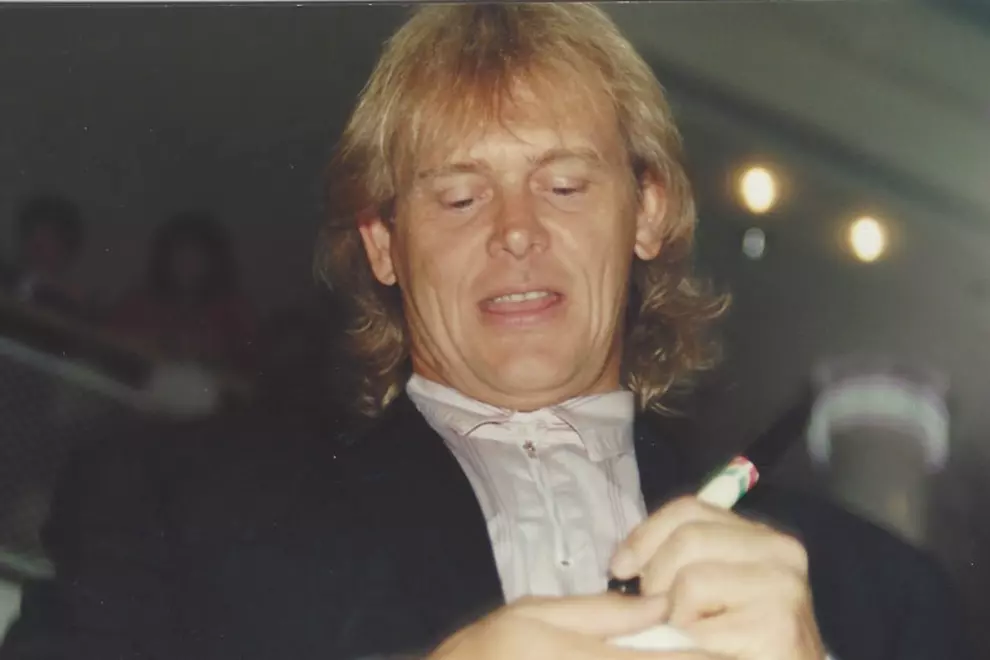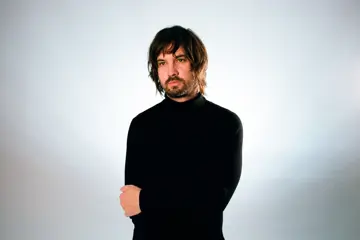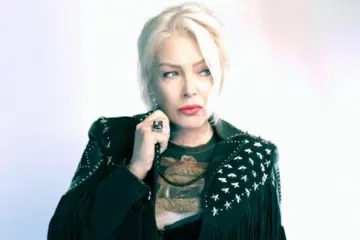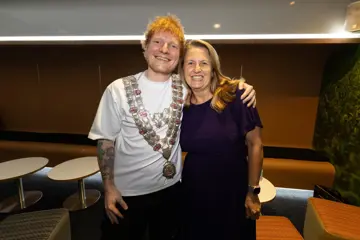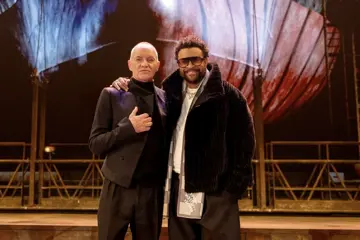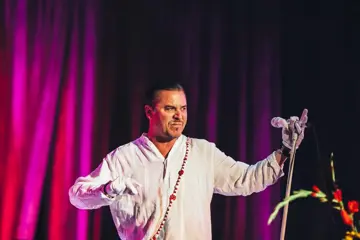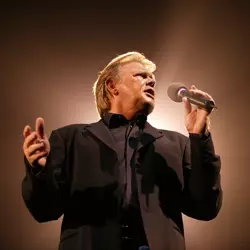 John Farnham
John FarnhamThe latest unofficial biography of John Farnham, Playing To Win, hit shelves just last month and it has already received a wave of feedback by critics, fans and the iconic singer himself.
Known for his distaste of unofficial works written about his life, the 67-year-old singer slammed the book written by Jeff Apter just last week, saying, “I’ve spoken to no one, they’ve spoken to no one I know or care about”.
Apter hit back soon after, insisting that he worked very close with Farnham’s long-time manager Glenn Wheatley while writing the book and has even called on Farnham to read it.
Below is an extract from the book given exclusively to The Music, detailing a contentious experience Farnham endured while on tour with fellow Melbourne act, Little River Band, in 1983.
Don't miss a beat with our FREE daily newsletter
"There were complications early on for John and LRB. On stage, Farnham had always been a man of the people – physical, dynamic, very willing to get the audience in on the action. An entertainer. For LRB’s Goble and Birtles, however, that was a little too flashy for LRB 1980s-style; they may have been rocking much harder, but they feared not being taken seriously. However, this didn’t stop John – until one night he pulled up abruptly on stage, like a lame horse. His microphone lead had been shortened, without John knowing. There’d be no Farnham antics tonight. And no joking with the crowd, either.
As Glenn Wheatley later revealed, John had been given orders. ‘The word was handed down from Beeb and Graeham [to John] not to be funny.’
‘Some nights,’ said John, ‘I’d have 60 feet of mic cable and I’d take off, but the next night I’d have six feet and I’d take off like I’d been roped.’ His microphone stand was sometimes secured to the stage with gaffer tape, which he angrily ripped off.
‘The gaffer tape wasn’t going to stop John Farnham,’ wrote Glenn Wheatley.
Every night, John would leave the stage soaked through; he worked incredibly hard, regardless of the length of his microphone cable.
American audiences didn’t seem to mind the switch of frontmen – Farnham laughed about it, wondering if they even noticed – but the same couldn’t be said for Capitol, the group’s North American label. The Capitol suits preferred Shorrock. According to Wheatley, Capitol ‘liked the blend of harmonies created by Glenn, Beeb and Graeham. It had been a successful formula.’ John needed to work extra hard to keep the label onside; he knew that without their sup- port, LRB would struggle to be heard.
If this wasn’t enough for John to contend with, there was also the matter of songwriting and publishing royalties, the most lucrative aspect of life in the band. The power struggle between Goble, Shorrock and Birtles had been tough enough, with each competing to get their own songs recorded and earn more royalties. John wasn’t in their same league as a songwriter; it took two albums before he had a song cut by the band, the dynamic title track of 1985’s Playing to Win.(Admittedly, the songs for 1983’s The Net had already been written by the time he joined the band.)
Even though ‘Playing to Win’, a rocking anthem and a real statement of intent, was John’s, by the time it had been through the LRB production blender, every member of the band had a share. Goble broke down the lyrics, word by painful word, to determine who owned what and what percentage of royalties they deserved. John eventually received just 55.5% of the best song he’d ever written. It was ludicrous.
There was also the issue of the band’s deep debt to Capitol. Even though their records had been selling strongly, they’d racked up some serious studio costs – hiring George Martin, for instance, didn’t come cheap; ditto, recording in the Caribbean. Keeping them on the road was also hugely costly – pretty much everything they earned through the turnstiles went towards paying their bills. There was also the matter of ‘earning out’ the substantial advances paid when Wheatley renegotiated their recording contract, completed before John was in the band.
Joining LRB wasn’t proving to be lucrative for John – not unless they had a monster hit record. He continued to struggle financially – at one lowpoint, he and Jill couldn’t afford to take their son, Robbie, to McDonald’s to celebrate his birthday. It was that tough.
As was their nature, the Little River Band kept touring. They wrapped another Oz lap of honour in April 1983 with a televised Royal Gala Performance. John, who was fast getting used to singing for royalty, looked very sharp in a pink sports jacket and black leather duds, as he and the band rocked the track ‘D’ with gusto. They then toured Europe during May, before return- ing to the US in late June. The high-rating TV show Solid Gold, until recently hosted by expat Aussie Andy Gibb, was their first port of call. Then there were almost 50 more North American dates, which took them through to the end of August 1983, rounding out a very lively 12 months for John.
He barely had time to reflect, though, because the band flew to Japan and then back to America, where they toured heavily until late October. This time they topped their previous efforts, ending with a four-night stand at the Universal Amphitheater – shows attended by such stars as Rick Springfield, Dionne Warwick and Olivia Newton-John.
Yet backstage at the Universal there was no love in the green room. None at all. By the night of the final show, John was fed up. He’d had enough of the bickering, the restrictions placed on him by Birtles and Goble, and the pressure to keep touring while still not earning any real money. He also missed his family, terribly. Another interminable band meeting began, but rather than quietly absorb the latest airing of grievances, as he’d normally do, John exploded. Farnham directed his anger at Birtles, but he was really addressing the entire group.
‘Get out of my way,’ he roared, ‘you are stopping me getting on and getting on with my job and doing what I want to be able to do.’ According to Glenn Wheatley, John then turned around, headed for the stage and put in ‘the performance of his life’.
John was still seething after the Universal show. Fortunately it was the last night of the tour. ‘I’m sick of this bullshit,’ he growled backstage. ‘I’m not going to get dragged into this thing. I’m going to get on and do something.’
‘It was a major turning point in John Farnham’s career,’ noted Wheatley, and he was absolutely correct. For perhaps the first time, John was taking control, tolerating no bullshit. It was this clarity that would soon help him reignite his solo career."
Playing To Win is out now via Black Inc Books.


